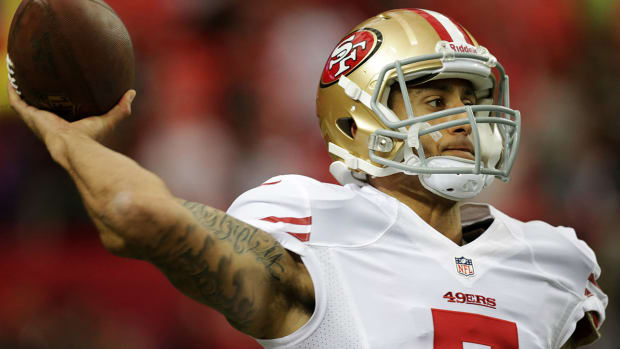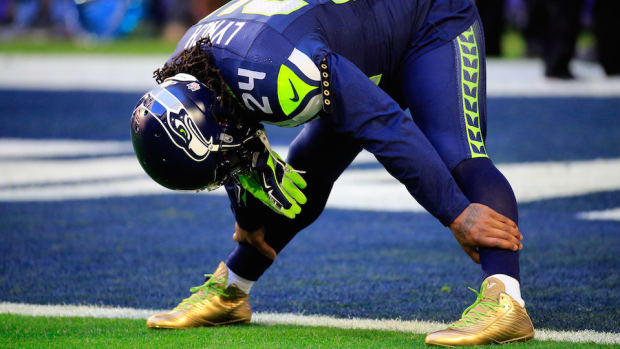Wes Welker's agents dispute Robert Kraft's claims surrounding breakup
Wes Welker's agents have disputed Patriots owner Robert Kraft's claim that the receiver turned down more money to play for the Broncos.
Welker signed a free-agent deal with the Broncos on Wednesday after playing six seasons for the Patriots.
Kraft was critical of the role Welker's agency, Athletes First, played in negotiations on Sirius Radio Monday, saying they "played poker, [but] they overplayed their hand.'' On Sunday, Welker's agent, David Dunn, told Comcast SportsNet New England that he believes the Patriots didn't want Welker back.
Kraft disagreed:
"Everyone in our organization wanted Wes Welker back,'' Kraft said. "Anyone who doubts that, or thinks we weren't serious, just doesn't get it. I've owned the team 19 years and I've known in the end we have to have certain limits and restraints. Like I've said many times, I really wanted Wes to be with us through the rest of his career, but it takes two sides to do a deal.
"In retrospect, I wish we could have wrapped that into an arrangement where it was part of a longer-term deal. But I really believe in this case, his agents misrepresented, in their mind, what his market value was. When you come right down to the bottom line, he accepted a deal in Denver that is less money than what we offered him."
On Tuesday, Dunn's agency emailed NFL.com with a response that characterized the Patriots' "lone" offer to Welker as "take-it-or-leave-it." (read complete response)
"When we asked if there was room for structural changes, we were told no," the Athletes First statement read. "We made a counter-offer for the same term and same maximum dollar amount and it was rejected. We inquired if any of the offer's components were negotiable and were told no. This refusal to actually negotiate made it easy to reject the Patriots' offer."
NFL.com's Ian Rapoport reported last week that Welker's camp had pursued an offer from the Patriots over the days and weeks leading up to free agency, but didn't get one until hours before he hit the market last Tuesday at 4 p.m. A source with intimate knowledge of Welker's position said Welkers' agents sent the Patriots one proposal on March 7, five days before the start of free agency, and a second one that weekend.
SI.com's Don Banks reported Monday the Patriots had essentially moved on from Welker to negotiating with free-agent slot receiver Danny Amendola even before Welker agreed to the Broncos' deal. Believing Welker to be likely on his way out of town, the Patriots started negotiating with the former Ram on Tuesday, the first day of free agency and quickly agreed to terms on a five-year, $28.5 million contract. The Patriots didn't reveal the deal with Amendola until after news of Welker's signing in Denver had surfaced Wednesday.
The Patriots and Athletes First have since countered each other in media reports as to the actual details and scope of Welkers' offers from the Broncos and the Patriots. NFL Network's Albert Breer reports:
A Patriots source said that the incentives in that counterproposal were $500,000 triggers in 2014 for 70, 80 and 90 catches, and a Pro Bowl berth, and that the $14 million was to be fully guaranteed. The team source said one earlier proposal from the player's side was for $18.5 million over two years, with a $15 million signing bonus.
The source on Welker's side disputes that the $14 million was to be fully guaranteed and said the triggers were set higher than 70, 80 and 90 catches for 2014, while acknowledging the Pro Bowl trigger. Additionally, the source denied the existence of the two-year, $18.5 million proposal, saying those numbers were part of a longer-term concept that the sides had discussed.
That context is important, because, according to the source, Welker felt like the deal offered last summer was better than last week's offer, which illustrates how history played into this particular situation. Welker's own sense that he was being phased out of the offense early in the 2012 season played into his reluctance to accept an incentive-laden contract. The fact that he responded with 118 catches made it difficult to accept a lesser offer.




